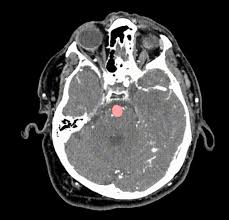
Germany Introduces Tuition Free Online Degrees A Revolutionary Step in Global Education
In a bold and visionary move, Germany has unveiled a groundbreaking initiative that offers tuition free online university degrees, aimed at transforming global access to higher education. Recognized for its long standing commitment to free education for domestic and international students in traditional universities, Germany is now extending that philosophy to the digital realm. The decision marks a significant shift in higher education policy and holds the potential to redefine how learning is delivered, funded, and experienced across borders. The launch of tuition free online degrees is not just an academic milestone; it is a statement about inclusivity, accessibility, and the country’s strategic embrace of global digital transformation.
The introduction of these programs comes at a time when access to quality higher education is still a luxury for millions of students worldwide. Rising tuition costs, living expenses, visa restrictions, and geographic isolation continue to create barriers for students seeking to study abroad. Germany's tuition free online degree model effectively removes many of these obstacles by offering accredited, high quality education without the traditional financial burden. By removing tuition fees and making coursework accessible through digital platforms, Germany is signaling a shift toward education as a public good rather than a private commodity. This step aligns closely with the UN's Sustainable Development Goals, particularly Goal 4 Quality Education for All.
The German government, in collaboration with public universities and technology partners, has designed these online degrees to reflect the same academic rigor as their on campus equivalents. Students will have access to fully accredited Bachelor’s and Master’s programs in fields such as Data Science, Artificial Intelligence, Renewable Energy, International Business, and Education Technology. Courses are delivered in English, widening access for international learners, and are supported by a blend of live virtual lectures, interactive sessions, peer collaboration tools, and self paced modules. Evaluation methods include project submissions, proctored online exams, and real time participation metrics ensuring transparency and academic integrity.
Unlike many global online degree platforms that charge high fees under the banner of “flexibility,” Germany’s new model does not impose tuition costs. Instead, the programs are publicly funded, with minimal administrative or semester registration fees that may range between €150 €300 annually. These fees cover basic services such as examination processing, digital libraries, and platform maintenance. Importantly, Germany is also offering scholarships and subsidies for students who may struggle even with the nominal fees, including those from low income backgrounds or developing nations. The model is intentionally designed to level the playing field and dismantle cost based exclusion from higher education.
One of the unique features of this initiative is the strong focus on digital literacy and emerging technologies. Recognizing the growing demand for future ready skills, Germany’s online programs are tailored to address the global talent gap in areas like cybersecurity, green technologies, digital governance, and health informatics. Students not only gain subject specific knowledge but also build critical soft skills such as collaboration, problem solving, and adaptability all within a fully virtual learning environment. These degrees are not limited to theory; many include virtual internships, project based learning, and simulated labs, bridging the gap between academia and the real world workforce.
This shift toward digital, tuition free education is also an important exercise in educational diplomacy. Germany has long been a hub for international students seeking affordable and high quality education. By extending its educational outreach beyond physical borders, it positions itself as a global leader in democratized learning. Students from underrepresented regions who previously could not afford international education due to visa challenges or travel costs can now access the same prestigious German education from their homes. This move is expected to strengthen Germany's soft power, foster intercultural exchange, and attract future talent to its innovation and business ecosystems.
Nevertheless, challenges lie ahead. Ensuring consistent internet access, digital device availability, and technical support for students in rural or underdeveloped regions will be crucial. Additionally, online learning requires a high degree of self motivation and time management, which may pose difficulties for some learners without prior digital exposure. The German education ministry has acknowledged these challenges and has outlined strategies to mitigate them such as providing asynchronous content, offering mentorship programs, and collaborating with local education centers to set up digital learning hubs in partner countries. These efforts are expected to enhance learner retention and success.
In conclusion, Germany’s introduction of tuition free online university degrees represents more than just an evolution in its education system it is a bold declaration that learning must be accessible, equitable, and future ready. As digital transformation accelerates globally, the need for scalable and inclusive education models has never been more urgent. Germany's initiative sets a powerful precedent for other nations, showing that it is both possible and beneficial to combine technological innovation with social responsibility. If adopted widely, this model could reshape the global education landscape, offering hope and opportunity to millions who have long been excluded from traditional academic pathways.
Related Post
Popular News
Subscribe To Our Newsletter
No spam, notifications only about new products, updates.
















